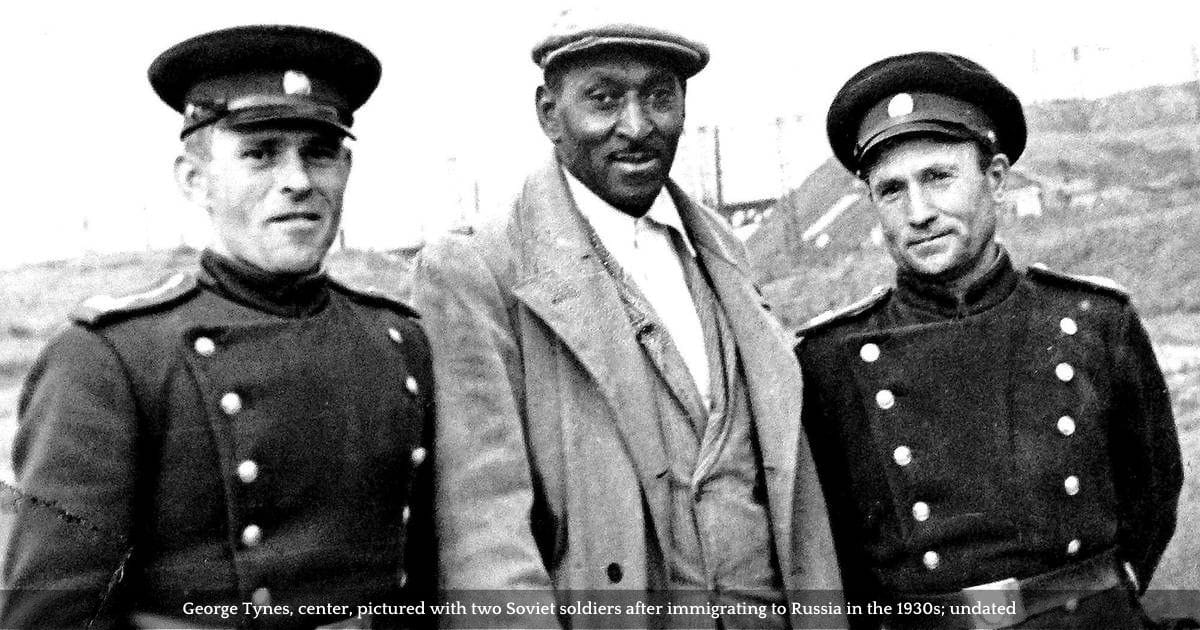An Investigation of the Black Experience during the Rise and Fall of the Soviet Union
For years, Russian President Vladimir Putin has dominated U.S. news reporting. Eight months ago, he surprised the world when he mounted a war against Ukraine. For many, the history of the Soviet Union and Eastern European countries is largely unknown. For context, NPR Russian correspondent Lucian Kim explained: “The Soviet Union… consisted of 15 republics. Most of them had a very strong idea of national identity… Russians, who were the dominant nationality, just never really thought about their own identity. They were the empire. So in some way, you could say that the last 25 years have been a search for identity. And [President Vladimir] Putin has tried to provide certain markers, for example, support for the Russian Orthodox Church or instilling pride from the Russian or Soviet victory in World War II. But it’s really a balancing act. Russia is still a multiethnic country and has a very complex tapestry of ethnicities and religions. So really, I think the trauma of losing an empire back in 1991, in many ways, still molds and affects what we’re seeing today.” Football player Darryl Hill added: “When the Communist government went away, a lot of these republics went off and became countries. So now you got Kazakhstan, Tajikistan, Georgia and Ukraine and Estonia and all these were republics, now they’re nations.”
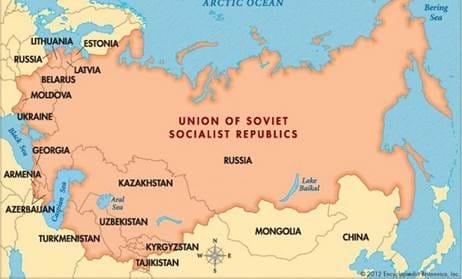
In 2001, James N. Eaton, Sr. (1930 – 2004), founder of the Black Archives Research Center at Florida A & M University, compared Russia’s serfdom to America’s system of slavery: “Russia… had serfs and serfdom [that] ended in the year of 1860 under the czar… then we had–slavery ended 1863… And… let me tell you… Being a serf… was worse. We need to know how the Russian people treated their own people… a terrible situation. I found it very baffling… Negro slavery compared to Russian serfdom would shock you. Yet the Russians were criticizing the South for slavery, they couldn’t understand they had something similar in Russia.” Former Essence Magazine founder and publisher Edward Lewis instead saw similarity between Russia’s serfdom and America’s racial discrimination: “How serfs, serfdom was portrayed, and how these Russians had to overcome that…I compare that to how we as blacks had to live in a society in terms of how we had to overcome.”
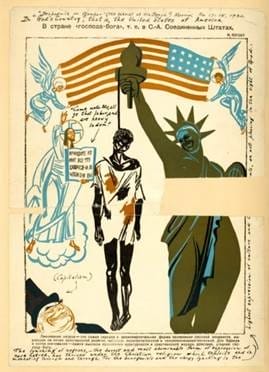
Elyse White (1908 – 2008), founding member of the Africa Travel Association (ATA), spoke of the Soviet Union’s attempt in the 20th century to recruit African Americans to the Communist Party: “At that time, Russia was wooing blacks to join the Communist Party… having to do with the civil rights struggle.”[5] Former president of the American Public Health Association Dr. Linda Rae Murray spoke about how her parents were amongst the thousands recruited: “Both of my parents [Ruth Childress Murray and Raymond Murray] …were never politically active… so when the evening news would come on… about how Russia was doing this, they would just say… ‘well what do you think socialism is? …what is so bad about doing things for the common good?’ So they really took a stand and they said… at least the principles that Russia seems to be about sounds good… We know America… does not live up to its principles… And their position was… the things Russia said, everyone that worked should have access to… food, clothing and shelter.”
However, while African Americans were being recruited, then-leader of the USSR Joseph Stalin seized grain stores, and famine was brought on the Ukrainian people and other USSR regions in the early 1930s. Some say Stalin was trying to thwart the Ukrainian Independence Movement. Recognized by many countries as a genocide, at least three million men, women, and children died as a result. The disaster was vehemently denied by the government, and with the coming of World War II, the story was suppressed behind other world news.
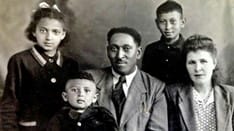
Although most Americans were ignorant of the horror occurring in parts of the USSR, noted African American scholar and historian John Hope Franklin (1915 – 2009) visited Russia and made these observations: “I went to Russia… as a part of a delegation of educators… And I was amazed at how much these people did not know or… how warped their views were of what was going on in the United States.” Richard W. Roberts spoke of his great uncle George Tynes, who moved to Russia in the 1930s: “There was certainly the stigma in the United States about going to a Communist country. The fact is, though… there was also a great campaign among some nations about international solidarity, and how working-class people ought to bond together… It might have provided an ability for him to feel embraced… he went there [Russia] and saw a great deal, for example, of African students, who were also recruited to come and study in the universities there… he married a Russian [sic. Russian-Ukrainian] woman [Maria Alexandrovna Tynes], they lived in Moscow and raised their three children… One of the other children… Emilia [Tynes] … married an African and had children. … there was a stigma attached to mixed-race children there, and a number of them were deposited… in orphanages.”
New York philanthropist and civic leader Carol Sutton Lewis also shared her uncle’s experience in the Soviet Union: “My oldest uncle, Uncle John [Sutton], was a scientist, and he worked at Tuskegee Institute [Tuskegee, Alabama] with George Washington Carver… this was in the ’40s [1940s], the United States and Russian governments… were trading… scientific information, voluntarily, and they asked Dr. Carver to come… Dr. Carver decided he was too old to go, but he sent a team which included my uncle. So my uncle John spent ten years in Russia… He spoke seven languages… He met a Russian woman and married her. They had a son. And then the Cold War descended, and neither the United States or Russian government thought it was a great idea to have a Russian-American, black-white couple (laughter) in the United States or in Russia (laughter). And so, they ejected my uncle from Moscow… would not let him bring his wife or his son… his wife died shortly after… And then, my uncle spent decades trying to get back to Russia to be with his son… only when my uncle was dying that the Russian government allowed the son who, by that time, had grown and was married and had a son of his own, to come to the United States to visit his papa… and promptly brought his family here and never went back.”
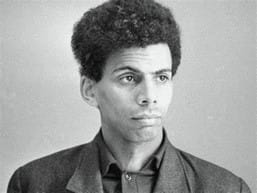
Despite the often tumultuous relationship between the U.S. and Russia, there have been longstanding artistic and cultural exchanges. Actress and poet S. Pearl Sharp told us of James Patterson in her interview: “James Patterson [James Lloydovich Patterson] …is a black Russian… he traveled around the country [U.S.] representing the Communist Party but representing… Russia, basically, as a poet… he was in tune with the Civil Rights Movement here… So there was this intercontinental thing happening through poetry and… through ballet and some of the other arts that, that the black Russians are in. Some of them went to Russia with Langston Hughes on a trip that he went [1922]. They were gonna make a film that never got made.”
The collapse of the Soviet Union in the early 1990s spurred much poverty in the region, as well as international tensions between the East and West. Aerospace engineer Wesley Harris recalled being in Russia during the breakup of the USSR while leading a delegation on aerospace: “Couldn’t leave the hotels at night… Riots on the Moscow subway… they just had collapsed the Soviet Union so you saw abject poverty in Russia… buildings with holes in them, government buildings, no toilets, no heat in the winter… We were in meetings all day with overcoats on and gloves… We were told to do this by the way, to develop this agreement not by NASA but by the State Department because they didn’t want the Russian scientists to find their way to Iran or North Korea or some other place that would cause trouble later.”
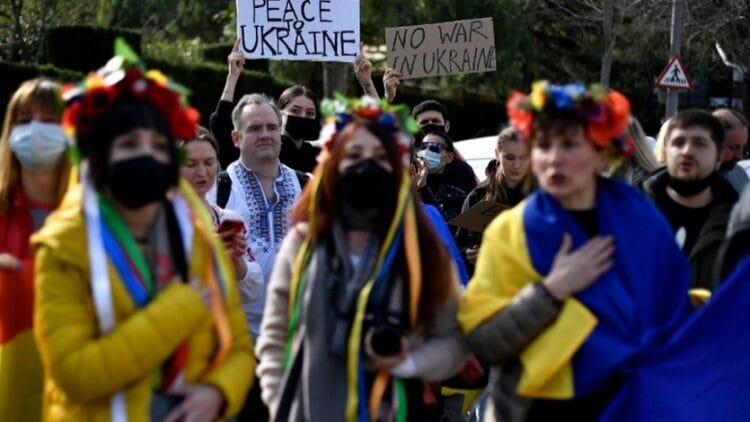
In 2005, Russian President Vladimir Putin stated: “Above all, we should acknowledge that the collapse of the Soviet Union was a major geopolitical disaster of the century.” This statement forewarned us of the current war and its impact. Only time will tell us what the future holds in terms of Russia, Ukraine, and the African American experience.
This article originally appeared on The HistoryMakers.

